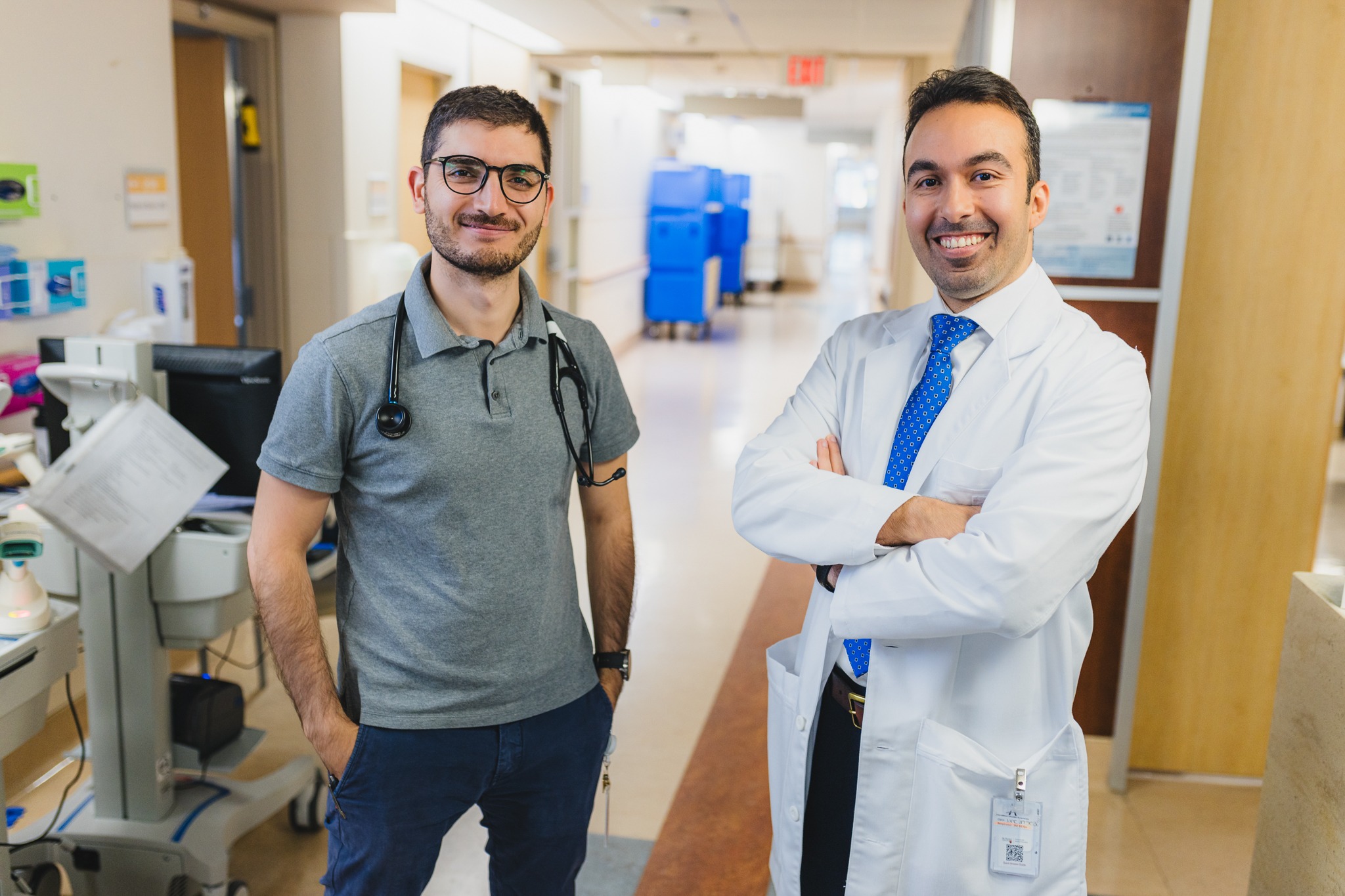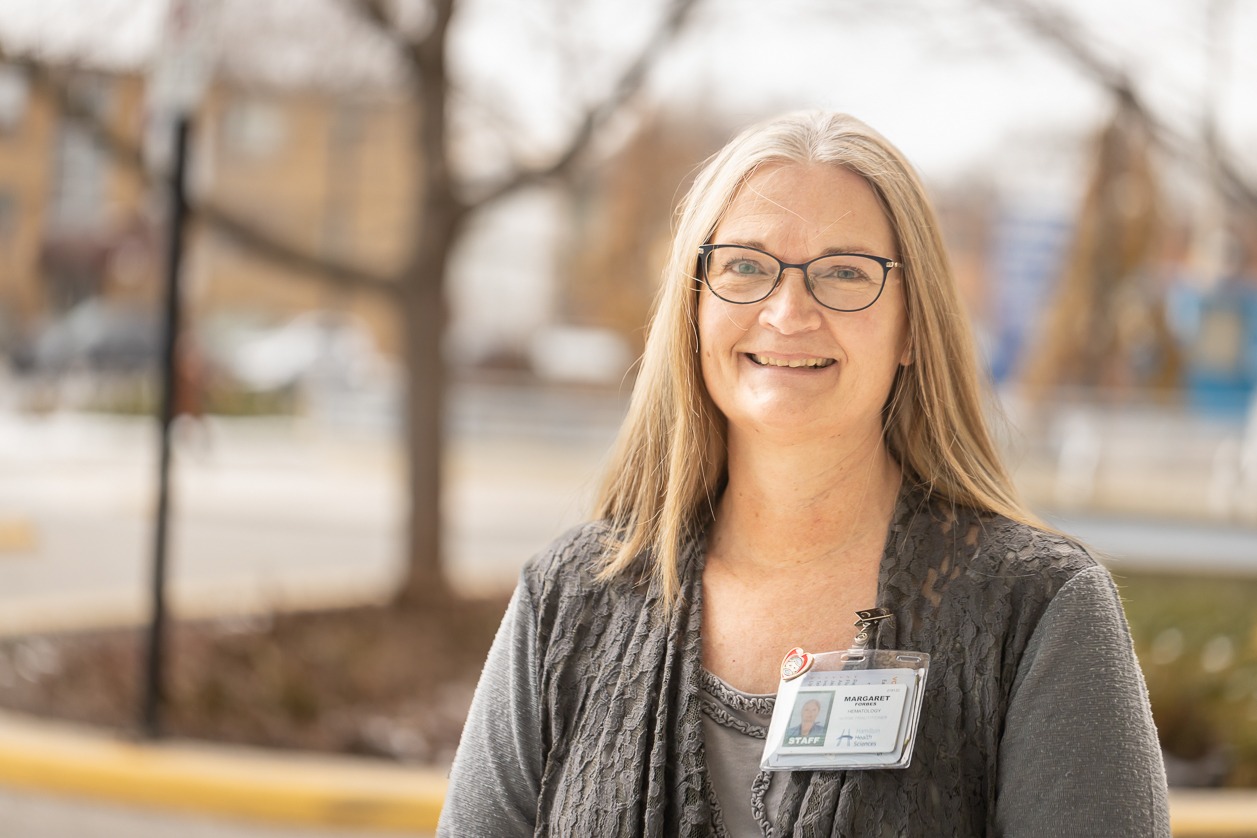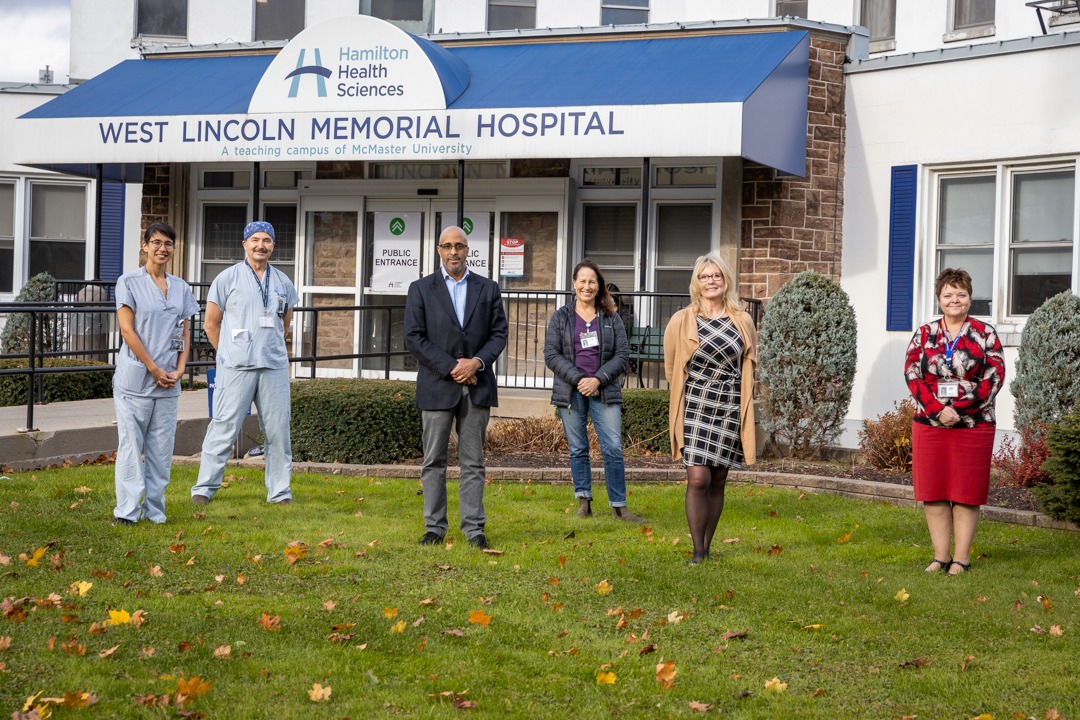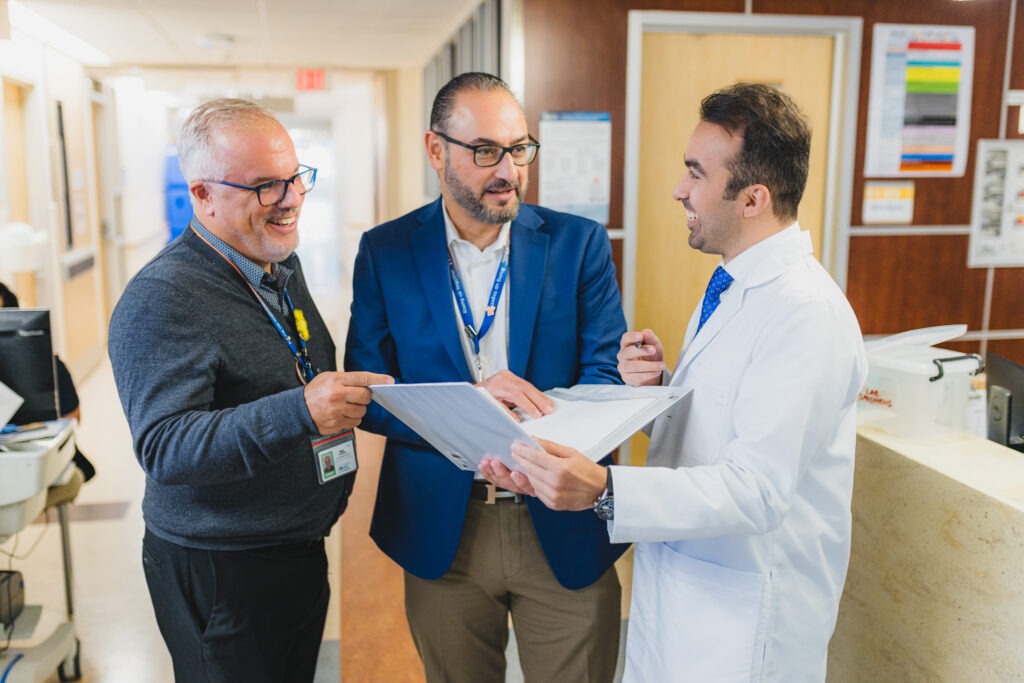
Expanded hospitalist program just what the doctor ordered
If oncologists care for oncology patients and cardiologists care for cardiac patients, then who do hospitalists help? Hospitals? Well, yes.

Dr. Khalid Azzam, HHS physician-in-chief
“Hospitalist physicians are named after where they work rather than the population of patients they work with,” says Dr. Khalid Azzam, Hamilton Health Sciences (HHS)’ physician-in-chief.
As well as providing direct care to patients who are staying in hospital, they also help the hospital itself through a more streamlined way of delivering care. “It’s fair to say that hospitalists are well-named because as well as caring for patients, they also help improve hospital workflows,” says Azzam.
While hospitalists are fairly new in Canadian hospitals, they’ve been part of the American hospital system for more than 25 years. In Canada, they’re more common in smaller hospitals. Few large Canadian teaching hospitals have a comprehensive model for hospitalist roles yet, but that appears to be changing, with HHS helping to lead the way.
What is a hospitalist? Find our more in this video:
Wave of the future
Hospitalists are doctors who specialize in internal or family medicine and work in hospitals, providing direct care to a wide range of patients from the time they’re admitted to the time they’re discharged.
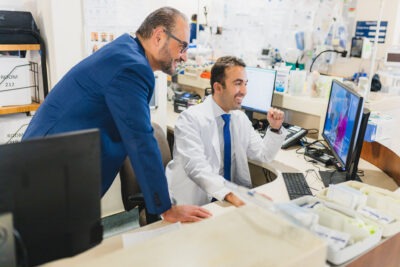
HHS physician-in-chief Dr. Khalid Azzam and Dr. Soltan Abouzobeida, with the expanded hospitalist program at Juravinski Hospital and Cancer Centre.
They have a deep knowledge of conditions and diseases including cancer, blood diseases, lung infections and heart failure. They also help hospitals run more smoothly and efficiently through improved workflows from the time a patient is admitted until they’re discharged.
“I believe that this model of care is the wave of the future for managing hospitalized patients’ care.” — Dr. Khalid Azzam.
Expanded hospitalist program
All HHS hospital sites have hospitalists, and their numbers are growing. This is especially true at HHS Juravinski Hospital and Cancer Centre (JHCC), where the number of hospitalist teams more than doubled in July from six to 15. To accomplish this, over 50 HHS internal medicine specialists took on the additional title of hospitalist and 26 new hospitalists were hired. They provide coverage 24/7.

Neil Johnson, HHS vice president of oncology and Juravinski Hospital site executive
“This expansion has provided an opportunity to standardize and innovate how we provide care at Juravinski Hospital.” — Neil Johnson, HHS’ vice president of oncology and Juravinski Hospital site executive.
A fellowship program for doctors of internal and family medicine wanting to formally train as hospitalists and earn a certificate in hospitalist medicine was also introduced as part of JHCC’s expanded hospitalist program. It’s one of the only training programs of its kind in Canada, and positions HHS as a national leader in training and certifying these specialists.
Benefits for patients
Hospitalists carry caseloads of patients, and are their patients’ designated point person during their stay. They monitor how their patients are doing and quarterback their care plan with the rest of the hospital’s health-care team including nurses, physiotherapists, occupational therapists, dietitians, social workers and psycho-spiritual practitioners.
“At JHCC, the majority of our hospitalists are internal medicine physicians, with deep skill sets in caring for a wide variety of complex health issues,” says Johnson.
Benefits for patients include consistency. For example, instead of learners and junior residents (doctors in training) visiting patients at the bedside to perform their assessment and provide medical care and then reporting back to the supervising doctor, patients receive this care directly from their hospitalist.
Innovative solution to a new challenge
Last year, JHCC leadership learned that as of July 1, 2023, most of that hospital’s internal medicine residents were being reassigned to HHS’ Hamilton General Hospital and St. Joseph’s Healthcare Hamilton due to changes to the post-graduate medical education program at McMaster University.
The hospitalist program was expanded to fill the gap left by internal medicine residents being relocated from the JHCC to other sites.
“Losing our internal medicine residents meant that we had to reimagine how we could provide care for this patient population,” says Johnson, adding, “Expanding our hospitalist program was an opportunity to standardize and innovate how we provide and improve care now and in the future.”
Residents continue to play a vital role at JHCC in areas including emergency, oncology, critical care, orthopedics and surgery, and some of these residents work with hospitalist teams.
“As a teaching hospital, giving residents the experience of practising the art of medicine is very important, and that’s what residency programs do,” says Johnson. “Our hospitalist fellowship program builds on Hamilton Health Sciences’ reputation as a leading teaching hospital.”

